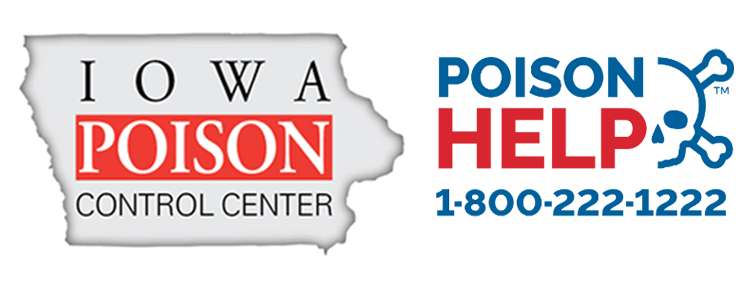
For Poisoning Questions or Emergencies, Call the Poison Experts at 1-800-222-1222
The Power of Medicine Take-Back Programs: Protecting Your Home and Community

When it comes to our health, we often focus on what we're putting into our bodies to feel better. However, we often forget about what's already inside our homes – expired, unwanted or unused medicines. These seemingly harmless pills, liquids or patches can pose significant risks, especially if they fall into the wrong hands. Fortunately, medicine take-back programs provide a safe and effective solution to this problem. In this blog post, we'll explore why these programs are the best way to get rid of expired medications and how they help reduce the chances of misuse or poisoning in our homes and communities. We'll also highlight the essential role of organizations like the Iowa Poison Control Center in providing assistance when needed.
The Hidden Danger in Our Medicine Cabinets
It's easy to underestimate the potential danger that lurks inside our medicine cabinets. Expired medications, unused prescriptions and over-the-counter drugs that we no longer need often accumulate over time. These medications may seem harmless, but they can become a source of great concern if they end up in the wrong hands, particularly children or individuals struggling with substance abuse.
Medicine Take-Back Programs: The Solution
Medicine take-back programs offer a simple yet highly effective solution to this problem. These programs are designed to provide a safe and convenient way for individuals to dispose of their expired, unwanted, or unused medicines. Here's why they are the best way to address this issue:
- Safe Disposal: One of the primary benefits of medicine take-back programs is that they ensure safe disposal of medications. When you throw away unused/expired medicine in the trash or flush them down the toilet, you risk environmental contamination and potentially harming wildlife. These programs provide an environmentally friendly alternative.
- Preventing Misuse: Expired or unused medications in the home can be a temptation, especially for teenagers or anyone struggling with substance abuse. By safely disposing of these drugs, you reduce the risk of them being misused or falling into the wrong hands.
- Protecting Children: Children are naturally curious, and they may mistake medicine pills or liquids for candy. Accidental poisoning is a significant concern when medications are accessible to kids. Medicine take-back programs help keep these dangerous substances out of reach.
- Community Safety: These programs contribute to the overall safety of the community by reducing the availability of prescription drugs for illicit purposes. This, in turn, can help combat the opioid crisis and other drug-related issues.
Iowa Poison Control Center: A Lifeline in Emergencies
While medicine take-back programs are an excellent preventive measure, accidents can still happen. In cases of accidental poisoning or suspected misuse, the Iowa Poison Control Center is always just a phone call away. The Poison Control Center provides vital assistance, guidance, and support in emergencies related to poisonings or exposures to harmful substances.
The Importance of Prompt Action
Accidents can happen at any time, and when they involve medications or potential poisonings, swift action is crucial. If you suspect someone has ingested a harmful substance or accidentally consumed medication, don't hesitate to contact the Iowa Poison Control Center at 1-800-222-1222. The experts at the Poison Control Center are available 24/7 to provide guidance and immediate assistance. They can help assess the situation, offer first aid recommendations, and, if necessary, advise on seeking medical attention.
What to Expect When You Call the Iowa Poison Control Center
When you call the Poison Control Center, you can expect professional and compassionate assistance. Here's what you should be prepared to provide:
- Information about the Person: Be ready to provide the age, weight, and any known medical conditions of the person affected.
- Details of the Exposure: Explain what substance was ingested or exposed to, how much, and when the exposure occurred.
- Phone Number: Depending on the exposure, age of the person, etc. we may ask for your phone number in order to follow-up on the exposure.
- Follow Instructions: Listen carefully to the instructions provided by the poison control center specialist. They may offer guidance on administering first aid or when to seek medical help.
- Stay on the Line: Do not hang up until the specialist determines that it's safe to do so. They may need to follow up with additional instructions or check on the person's condition.
Remember that quick action can make a significant difference in the outcome of a poisoning or exposure incident. It's always better to seek expert advice and assistance rather than attempting to handle the situation on your own.
Medicine take-back programs are an essential tool in ensuring the safety of our homes and communities. By disposing of expired, unwanted, or unused medications through these programs, we prevent misuse, accidental poisonings, and environmental harm. Moreover, organizations like the Iowa Poison Control Center are available around the clock to provide guidance and assistance in emergencies.
Let's take responsibility for our health and the well-being of those around us. Participate in medicine take-back programs, and remember that help is just a phone call away should you ever need it. Together, we can create safer homes and communities for everyone.
